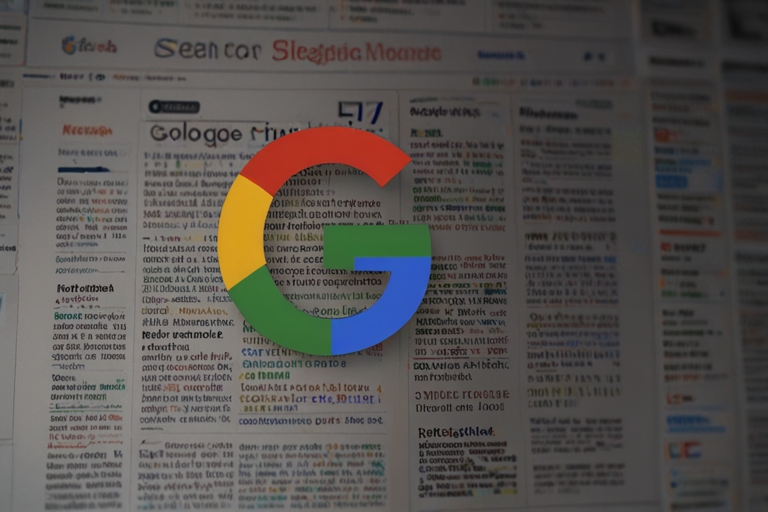
TL;DR
- Google is facing an EU antitrust complaint over its AI Overviews in Search.
- The complaint was filed by the Independent Publishers Alliance.
- Publishers argue that Google uses their content to generate AI summaries, costing them traffic and ad revenue.
- Google says AI Overviews help users ask better questions and discover more content.
- The European Commission has not yet confirmed whether it will formally investigate.
Publishers Accuse Google of Misusing Content
A coalition of digital media companies under the Independent Publishers Alliance has submitted a complaint to the European Commission, accusing Google of violating EU competition laws by scraping and repurposing content for its AI Overviews feature.
The alliance claims that Google’s AI-generated summaries, which appear at the top of search results, are drawing clicks away from original content providers, leading to measurable declines in traffic, readership, and revenue.
In their words, the feature “misuses web content for Google’s AI Overviews in Google Search, which have caused, and continue to cause, significant harm to publishers.”
Opting Out Is Not a Real Option
One of the central claims in the complaint is that publishers cannot easily opt out of having their content used in AI-generated summaries without removing themselves from Google Search altogether — a move that would effectively erase their visibility online.
“Unless publishers are willing to disappear from Google search results entirely, they do not have the option to opt out,” the complaint argues.
The lack of clear opt-out mechanisms has become a recurring issue in the age of generative AI, where many platforms and model developers rely on freely available web data to power LLMs without express consent from content creators.
Google Responds: “Traffic Fluctuations Are Natural”
Google, in a statement to Reuters, defended its AI Overviews product. The company argues that the feature enhances user experience by allowing people to “ask even more questions,” thus creating new discovery opportunities for publishers.
Google also pushed back on traffic loss claims, stating:
“Web traffic can fluctuate for many reasons, and these claims are often based on incomplete data.”
It maintains that AI Overviews are part of a broader push to improve search functionality for users, not to replace or harm content publishers.
Antitrust Risk Increases in the AI Era
The complaint comes amid a broader wave of scrutiny over Big Tech’s use of AI tools, especially in Europe, where the Digital Markets Act (DMA) and Digital Services Act (DSA) have imposed new constraints on platform behaviors.
While the European Commission has not yet said whether it will launch a formal investigation, past enforcement actions suggest that Google could face regulatory pressure, especially if evidence shows that its dominance in search is being extended unfairly into AI-generated content.
If the Commission determines that Google is leveraging its search dominance to suppress competition from original content creators, the company could be subject to fines or structural changes to its platform in the EU.
Google Search and AI Overviews Impact
| Metric | Detail | Source |
| Estimated Traffic Decline for Publishers | 20–40% since AI Overviews rollout | GWI Survey |
| Google Search Market Share (EU) | ~91% | StatCounter |
| Active AI Overviews Users | Over 500 million globally | Google I/O 2024 |
| Publisher Revenue Drop | Average 15–25% YoY from ad-based monetization | Press Gazette |
| Complaining Organization | Independent Publishers Alliance | Reuters |
Context: A Year of Controversy for AI Overviews
Google introduced AI Overviews (originally called Search Generative Experience) in 2024, as part of its plan to integrate generative AI into core products. The company claimed it would streamline the search process and help users find information more quickly.
However, the tool received heavy criticism early on for producing inaccurate or bizarre answers, such as recommending glue on pizza or advising unsafe health practices.
Despite these hiccups, Google has expanded the rollout of Overviews across major English-speaking markets and is preparing for integration into non-English languages in late 2025.
Publishers, on the other hand, say the tool has created a zero-click search environment, where users no longer need to click through to external websites for basic answers — thus cannibalizing traffic.
Legal Precedents May Set the Tone
The case against Google is not the first time the company has been accused of content appropriation. Similar lawsuits are underway in the U.S., including a major case by The New York Times against OpenAI and Microsoft, alleging unauthorized use of copyrighted journalism to train AI models.
In the EU, the European Publishers Council has also lobbied against dominance by tech platforms, pushing for stronger enforcement of digital competition rules.
If the Commission chooses to proceed, the AI Overviews complaint could become a seminal case in defining how generative AI tools interact with content rights and antitrust frameworks.
Looking Ahead: Will the EU Intervene?
The European Commission has yet to confirm whether it will initiate a formal antitrust probe into Google over AI Overviews. However, the agency has a history of penalizing the tech giant, including a €4.3 billion fine in 2018 over Android-related practices and €2.4 billion over Google Shopping in 2017.
With publishers increasingly organized and aligned on the harms of AI-generated summaries, the pressure to investigate is mounting.
If Google is forced to limit or license content used in its AI tools, it could reshape not only its Search product but the entire economic structure of news visibility and discovery on the internet.





